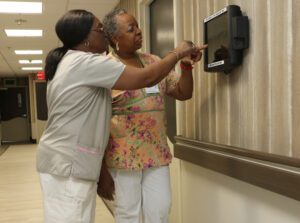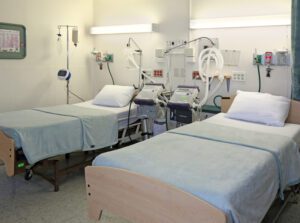Optimal recovery after dialysis involves a carefully planned care plan personalized to your needs. This path includes regular check-ins with medical professionals, monitoring of crucial health signs, and medication management. Think of it as a roadmap, laying out steps that might not always be obvious. It leads you through times when everything feels normal and during those unexpected moments, ensuring your well-being at every juncture. The first stop on this journey is understanding your nutritional needs.
Essential strategies for post-dialysis care and recovery include staying hydrated, maintaining a balanced diet low in sodium and phosphorus, monitoring blood pressure, managing stress levels, and getting regular physical activity. Additionally, it’s important to follow your healthcare provider’s instructions closely and attend all recommended follow-up appointments to ensure proper recovery.
Establishing a Post-Dialysis Care Plan
The journey towards recovery after dialysis does not end when the treatment concludes; in fact, it’s just the beginning. Creating an effective care plan, tailored to individual requirements, can significantly impact a patient’s overall health and well-being. This involves coordinating with healthcare professionals to schedule regular follow-up appointments, monitor vital signs and blood test results, and create a comprehensive medication management plan. First things first – scheduling regular follow-up appointments is crucial. This allows healthcare professionals to keep track of your progress and make any necessary adjustments to your care plan. From checking on your overall health to discussing any changes in symptoms or concerns, these appointments are an opportunity to address any issues that may arise after treatment.
Moreover, monitoring vital signs and blood test results is essential for gauging the effectiveness of the dialysis treatment and identifying any potential complications that may require attention. By keeping a close eye on these indicators, healthcare providers can ensure that patients are responding well to their post-dialysis care plan and make adjustments as needed. For example, consistent monitoring of blood pressure, fluid retention, and electrolyte levels helps identify imbalances or abnormalities that could lead to further health complications if left unaddressed. This proactive approach allows healthcare professionals to intervene early, minimizing potential risks and promoting better health outcomes.
Creating a comprehensive medication management plan is integral to post-dialysis care. This involves clearly outlining the medications prescribed, including dosage instructions, potential side effects to watch out for, and strategies for adhering to the medication regimen. Adhering to medication regimens can help avoid unwanted side effects and ensure that prescribed treatments are optimally effective. In summary, establishing a post-dialysis care plan is a multifaceted process that requires close collaboration between patients and their healthcare team. By addressing specific needs through regular follow-up appointments, vital sign monitoring, and medication management, patients can experience improved overall health and well-being following dialysis treatment.
Addressing Nutritional Needs: Protein, Potassium, and Phosphorus
After dialysis, ensuring the right balance of nutrients is crucial for your recovery. Let’s first talk about protein. During dialysis, protein becomes extra important as it aids in muscle repair and overall health. Your body will require more protein than before due to the removal of some protein from your blood during treatment. So, where should you get this protein from? Lean meats like chicken and turkey, fish, eggs, and dairy products are excellent options with high-quality protein that supports better recovery.
But it doesn’t stop there; managing potassium and phosphorus levels is equally crucial for your overall well-being post-dialysis. Imbalances in these minerals can lead to various complications, such as muscle weakness, bone problems, and heart issues. Therefore, controlling the intake of these vital minerals is essential. Specifically, foods like bananas and dried fruits are high in potassium, while phosphorus-rich foods include nuts, seeds, and dairy products. It’s important to identify these high-potassium and high-phosphorus foods and limit their consumption.
Remember: It’s always best to discuss your diet plan with a registered dietitian who specializes in kidney disease. They can help create a meal plan tailored to your dietary needs while ensuring you’re obtaining enough nutrients to aid in recovery. A balanced diet with adequate protein can significantly contribute to post-dialysis recovery, aiding in muscle repair and overall health. So by balancing your protein intake along with managing potassium and phosphorus levels through careful food choices, you’re giving yourself the best chance at a smooth recovery after dialysis.
Managing Fluids Intake
After dialysis, it’s important to keep a close eye on your fluid intake. When your kidneys aren’t able to remove enough fluid from your body, it can lead to fluid buildup, high blood pressure, and strain on your heart. This is why doctors often advise limiting the amount of fluid you consume. One way to do this is by being mindful of water-based foods like fruits and vegetables. These foods naturally contain water and can contribute to your daily fluid intake. Remember that moderation is key here – even though they are healthy, consuming large quantities of these foods may increase your fluid intake beyond the recommended limit.
Additionally, restricting the consumption of high-fluid items like soups and ice creams can significantly help manage overall fluid intake. Keeping a journal of your daily fluid intake can also assist in monitoring and managing how much you’re consuming each day. It’s not just about what you eat though – what you drink also matters. Being conscious of the volume of beverages you consume can make a big difference. Sometimes it’s not just about cutting back on drinking – it’s also about choosing the right drinks. For example, choosing small sips over big gulps may help control the overall amount of fluids consumed.
Practical Tips for Managing Fluid Intake
Here are some practical tips to help you manage your fluid intake effectively:
- Set Daily Limits: Work with your healthcare team to establish the appropriate daily fluid limits for you based on your unique health needs.
- Choose Low-Fluid Foods: Opt for foods with lower water content, such as bread, rice, and pasta, which can help balance out your overall fluid intake.
- Monitor Caffeine: Caffeine can act as a diuretic, causing increased urine output and potentially impacting fluid balance. Be mindful of caffeine-containing beverages like coffee or tea.
- Be Mindful of Thirst: It’s natural to feel thirsty, but sipping water throughout the day instead of drinking large amounts at once can help manage hydration more effectively.
By incorporating these strategies into your post-dialysis routine, you can take active steps towards maintaining a careful balance of fluids in your body, promoting better recovery and reducing the risk of complications related to fluid overload.
Prioritizing Comfort and Quality of Life
Post-dialysis care is a critical period where patients need to feel supported and comfortable. Comfort plays a key role in the overall well-being of individuals. It’s not just about medical management; it’s about creating an environment that fosters healing and provides a sense of peace and relaxation.
One way to prioritize comfort is by optimizing the living environment. This might involve ensuring the temperature is just right, investing in a comfortable chair, or adding soft pillows and blankets. A cozy and relaxing space can significantly contribute to a patient’s recovery journey. Addressing any pain or discomfort promptly is essential to maintaining a good quality of life during recovery. Imagine finding relief from chronic pain or discomfort by adjusting your seating arrangement or keeping your living space warmly lit and well-ventilated. These simple adjustments can make a world of difference in promoting comfort and relaxation, crucial elements in the healing process.
Engaging in activities that bring joy and relaxation also plays a fundamental role in post-dialysis care. Whether it’s reading a favorite book, listening to soothing music, or spending time with loved ones, these activities can uplift spirits and contribute to improved emotional well-being. Moreover, establishing routines that include activities patients enjoy can help provide structure and a sense of normalcy. It’s important for individuals to have moments where they can forget about their illness and focus on things that bring them joy.
Ultimately, by prioritizing comfort, patients can experience a better sense of well-being during their recovery period. Creating an atmosphere that supports their physical needs as well as their emotional well-being is essential for optimal recovery.
Practical Strategies for Optimizing Comfort and Quality of Life
Creating a comfortable environment isn’t just about fluffy pillows and soft blankets; it also involves being attuned to the patient’s emotional and psychological needs. Listening to their concerns, providing reassurance, and offering companionship are equally important aspects of post-dialysis care. Consider how you feel when surrounded by warmth, support, and understanding; it’s an immediate mood lifter. The same applies to individuals undergoing post-dialysis care. Emotional support can have a profound impact on their mental well-being and recovery journey. Encouraging patients to engage in light physical activities like short walks or gentle stretching exercises can also contribute to their overall sense of comfort and well-being. Movement promotes circulation, helps alleviate muscle stiffness, and releases feel-good hormones. Ensuring optimal recovery involves more than just physical health; it encompasses emotional well-being, comfort, and joy in everyday life.
Incorporating Physical Activity and Exercise
After a dialysis treatment, many individuals may feel exhausted and even sore, but it’s important to consider the benefits of staying active. Engaging in regular physical activity and exercise tailored to individual capabilities can be incredibly beneficial for post-dialysis patients. When it comes to finding suitable activities, it’s all about taking small steps towards gradually building up strength and endurance.
Walking is a great way to start introducing physical activity into your routine. It’s gentle and can be done at your own pace, making it suitable for various fitness levels. If you have access to a pool, swimming or water aerobics are excellent low-impact exercises that can help improve circulation and overall energy levels. These activities not only strengthen muscles but also enhance flexibility, helping to prevent stiffness, which is common after long periods of sitting during dialysis.
Incorporating physical activity and exercise isn’t just about staying fit – it’s about regaining strength, improving vitality, and embracing an active lifestyle that contributes to your overall well-being.
Exploring Possibilities: Benefits of Home Dialysis
Home dialysis offers a refreshing contrast to traditional in-center treatments by allowing patients to receive dialysis in the comfort of their own homes. This flexibility can significantly improve your quality of life, giving you more time and freedom to pursue other interests and activities. One of the most significant advantages of home dialysis is the reduction in travel. No longer will you have to factor in commute times or battle traffic to go to and from a dialysis center several times a week. With home dialysis, you can avoid the stress and hassle of traveling, allowing you to channel that energy into things that matter most.
Moreover, empowerment is a crucial element of home dialysis. It enables you to take an active role in managing your own care, instilling a sense of control and responsibility. By gaining a deeper understanding of the treatment process and being directly involved in it, patients often experience increased confidence and a greater sense of independence. Flexibility in scheduling is another key benefit. You’re not bound by the operating hours of a dialysis center, providing you with the freedom to fit your treatment sessions around your daily routine. This means you could plan your treatments for times that work best for you, allowing for greater harmony with family commitments, work schedules, and personal preferences.
With proper training and support from healthcare professionals, home dialysis can be a deeply rewarding approach to post-dialysis care. The knowledge and skills acquired during training empower patients to confidently perform their treatments at home while having access to professional guidance when needed. In summary, home dialysis presents an appealing alternative that enables patients to reclaim control over their treatment schedules, reduce the burden of travel, and actively participate in their own care. This option opens up new dimensions of freedom and flexibility for individuals managing post-dialysis care, contributing significantly to an improved quality of life.
To learn more about how home dialysis can benefit you or a loved one, please feel free to contact us. Explore the possibilities today!











